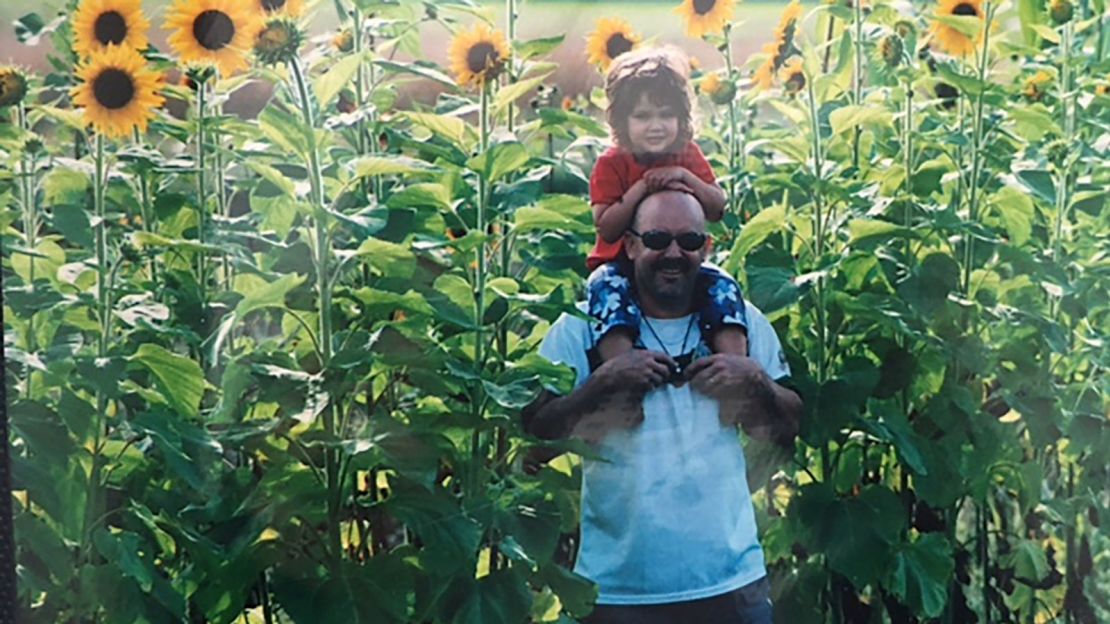Editor’s Note: In a series of essays called “The Distance,” Thomas Lake is telling the stories of Americans in the pandemic. Email [email protected] if you have a story idea.
Get through this winter, we tell ourselves. Get through this day, or this hour. On a cold Monday in February, Scott Langley had to get through one song. He was walking by a frozen lake, singing to his departed wife.
“When you asked how I’ve been here without you, I’d like to say I’ve been fine, and I do,” he sang into the frosty air of Vermont’s Upper Valley. “But we both know the truth is hard to come by, and if I told the truth, that’s not quite true.”

Scott was 65, diabetic, nervously enduring the unknown period of time between this afternoon and the day he could get his coronavirus vaccination. He’d been up since 5:30, and had taken his medicine, gotten his 14-year-old daughter to school, worn two masks into Hannaford, resisted the urge to punch the maskless customer in the produce section. He ate a low-carb lunch and vigorously pedaled the exercise bike, trying to keep his blood glucose down, doing whatever he could to keep Ailyn from becoming an orphan.

No, Scott was not fine. Not yet. He had survived the two years, four months and two weeks since Heather died, after withstanding the six years of her illness, a “journey through hell,” as he called it, the cancer always returning, her pain unimaginable, the drugs helping at first, then failing. She’d read Ailyn the first six Harry Potter books, but Scott had to read the seventh.
“Some days are diamonds, some days are stone,” Scott sang, reaching the chorus of a country-rock standard written by Deena Kaye Rose and covered in 1981 by John Denver. Scott was on a long run of stone days when he met Heather in 2004. He was freshly divorced, 48 years old, balding and overweight, working seven days a week in a hospital deli in Lebanon, New Hampshire. Heather was 36, a nursing assistant for pediatric cancer patients, and he found her so attractive that he wrote his phone number on the lid of her salad container. He wrote it again, and again. Finally, she said yes.
Their first date was a picnic in the park. Heather did not hold back. She told him she’d recently stayed in bed for most of a month before forcing herself to get up and go back to work. Heather was divorced, too, and had been a single mother. Her 10-year-old daughter, Sarah, was once a Girl Scout and an aspiring veterinarian. “She was well known for her wonderful laugh,” read a line in Sarah’s obituary.
Stories of Americans living through the pandemic
“Sometimes a cold wind blows a chill in my bones,” Scott sang, still walking around Lake Fairlee. It was about 19 degrees, the wind slicing down from the north. At home on an office table, in two side-by-side urns, he kept Sarah’s and Heather’s ashes.
On January 4, 2004, Sarah attended a sledding party at the home of a family friend. According to the Rutland Herald newspaper, Sarah and a 7-year-old boy shared a snow tube on a run down a steep hill. The tube spun around, turning them backward, and veered off course. They went airborne, struck a tree and landed in a brook. The boy was injured. Sarah was killed.
Later that year, after a few more dates, Heather told Scott she wanted another child.
“Some days are diamonds,” he sang. They were married in 2005. Ailyn was born in 2006. Scott became a father at 51. He treated Ailyn as if she were made of glass. Afraid she’d break her arm when she rolled over in bed. Afraid she’d fall headfirst from the swing. He wondered how he could possibly take her sledding. But he did take her, on a hill with no trees. Heather let them go.
She sighed with relief in early 2017, when Ailyn reached 10 years and three months old, finally older than the sister she never knew. Heather died the following year, a few months after her 50th birthday.
“Some days are stone,” Scott sang, walking hard in the cold to bring that blood glucose down, turning now for home, firing up the Subaru to pick up Ailyn from school. He brought in wood from the garage. Ailyn had a snack and went upstairs to watch YouTube before moving on to her homework. It was 4:30, the hardest part of the day, his mundane tasks mostly completed, the time stretching out before him. Get through this hour. Get through this day. Get the vaccine and get through this year, and the next, and the next, until Ailyn is 21, with a job, a car, a plan —
I have not suffered the way Scott has. But I do the same thing: looking to the future, holding out for some glittering diamond of a day so I can get through all these stones. Eventually I’ll run out of both. I don’t know how soon. Which is why I keep singing these lines from “A Long December,” by Counting Crows, another sad winter song:
I can’t remember all the times I tried to tell myself
To hold on to these moments as they pass
Scott made chicken jambalaya for dinner, and read a little as the rice boiled. They ate upstairs together while watching a Disney film called “Ralph Breaks the Internet.” Scott cleaned the kitchen, and they went back upstairs. He watched more TV while Ailyn sat on his bed and drew with a pencil. The evening slipped by. He went downstairs and turned off the lights and came back up and took a white pill called Lorazepam to stop his mind from racing. He got in bed around 9:30. He could see a bar of light under Ailyn’s bedroom door.
In one of our phone interviews, I asked Scott about the choices he made in 2004, the year he and Heather met. If he’d known all that lay ahead — the radiation, the surgeries, the pain that forced her to sleep alone, the crackling walkie-talkie that called him to her bedside in the middle of the night, turning her over, watching her fade away, listening as she told him to bring her to hospice so she wouldn’t die in this house — if he’d known all that beforehand, would he still have asked her to marry him?
Yes, he said. He’d do it all again. The diamonds and the stones.
Scott still had some time left, as did his daughter, and the house was warm, the refrigerator full. There are days you survive, and days you savor, and some days you do quite a bit of both. Scott lay awake, the pandemic unending, the grief unyielding, and he said a quiet prayer of thanks.
We are waiting for things to get better. And when they do, we may find some other reason to look ahead. From an upstairs window, Scott could see the farm across the road. Heather used to look out that window and admire the sunflowers. She was gone, but not gone, and he was here, but somewhere else. Rocketing forward. Shaking off February, dispensing with March. The snow melting. The seeds bursting open. The sunflowers rising and blooming again.

